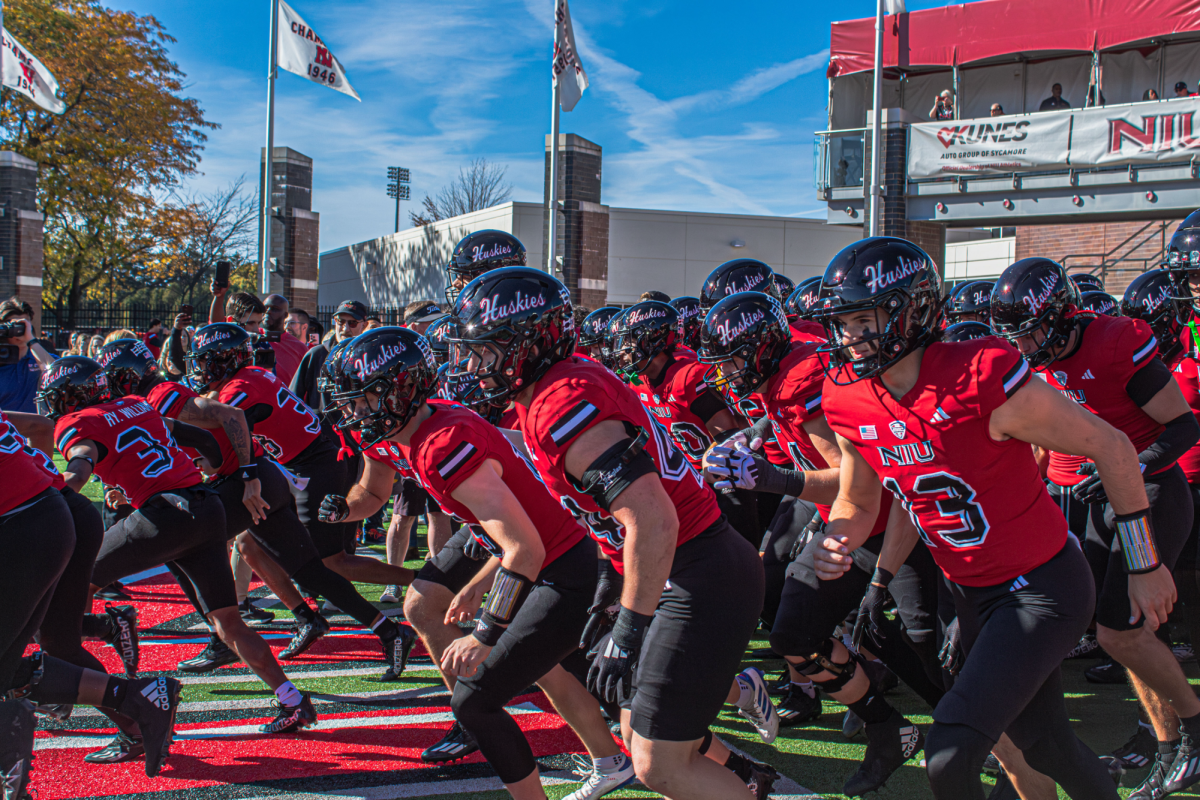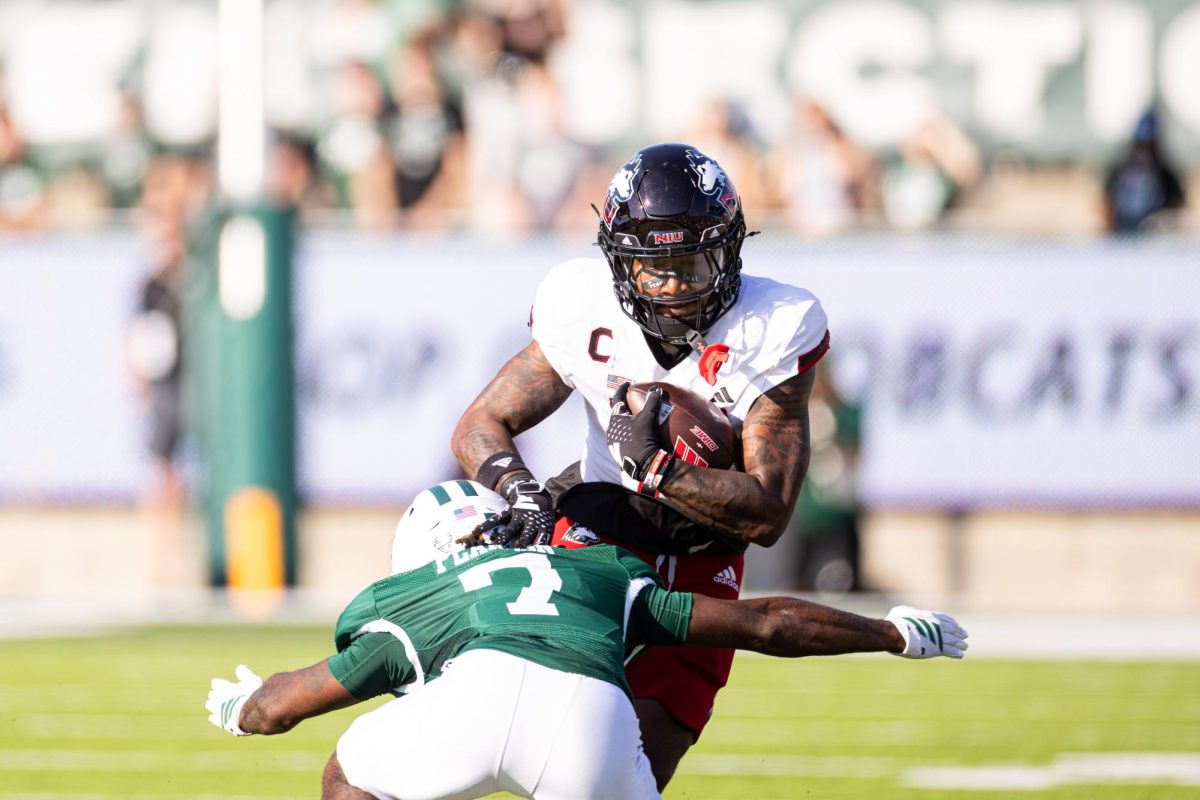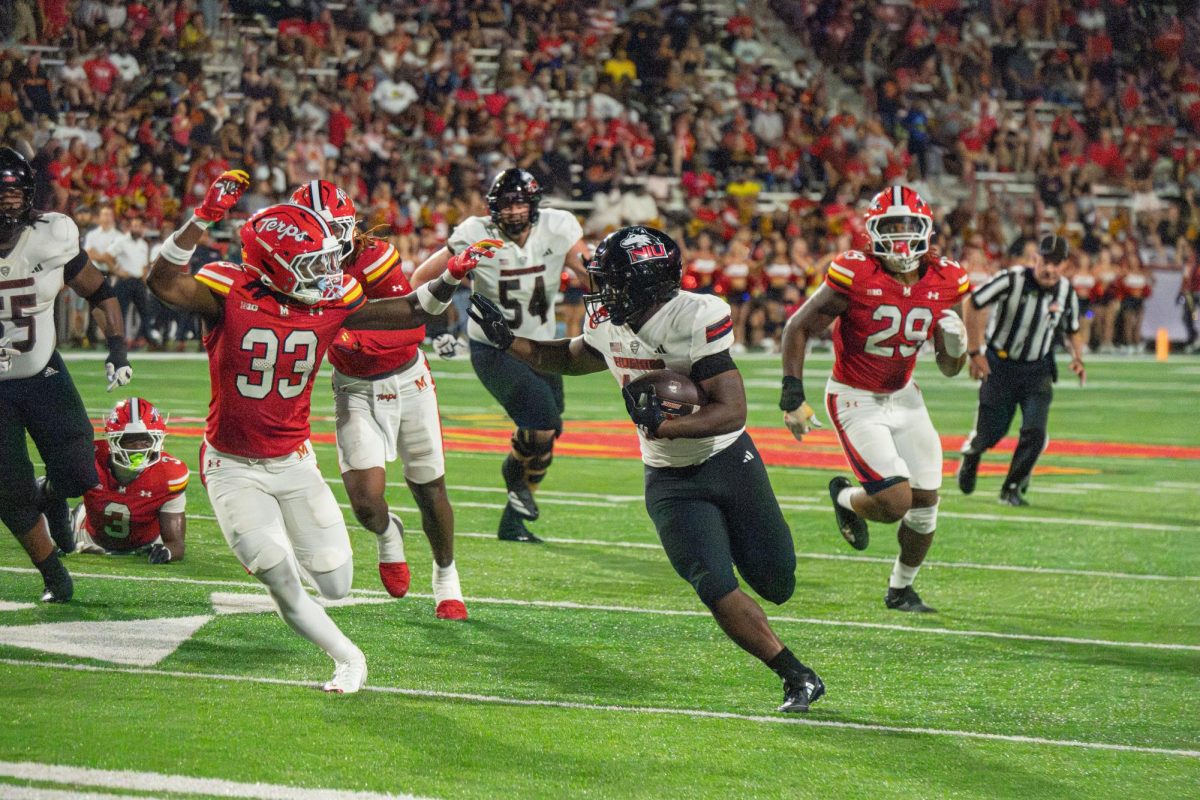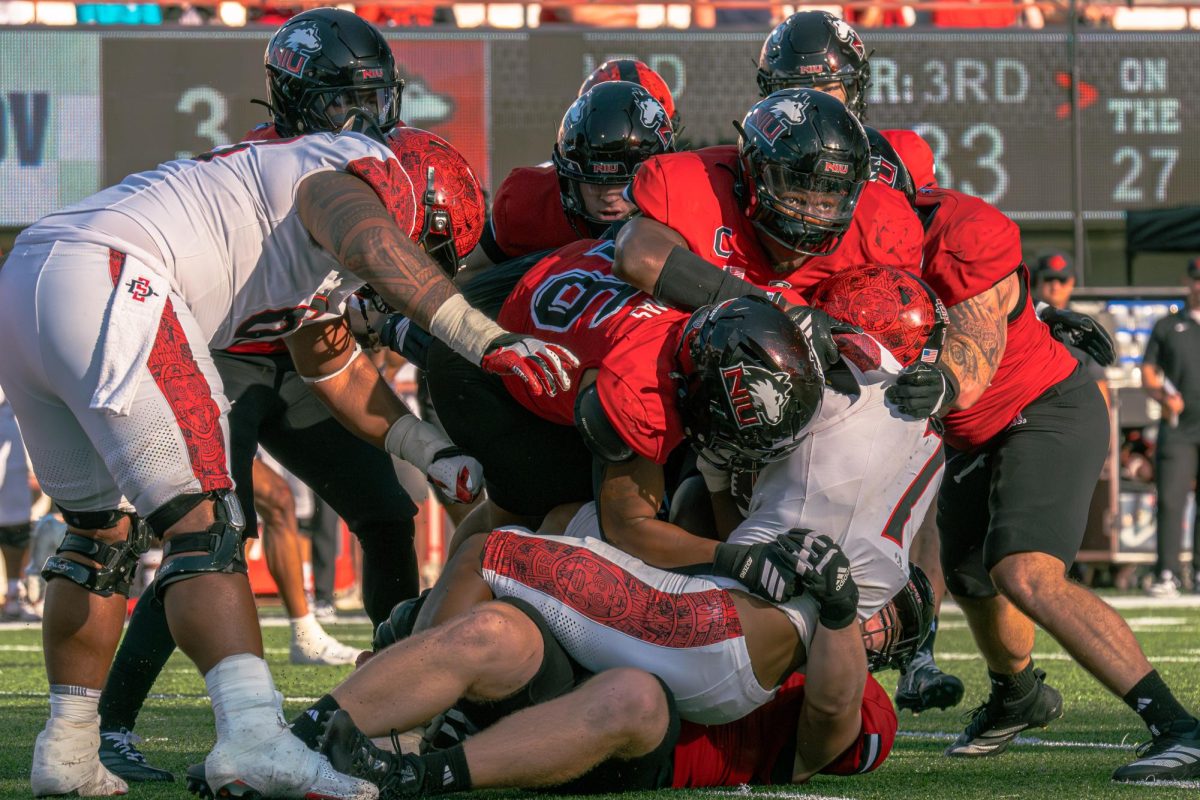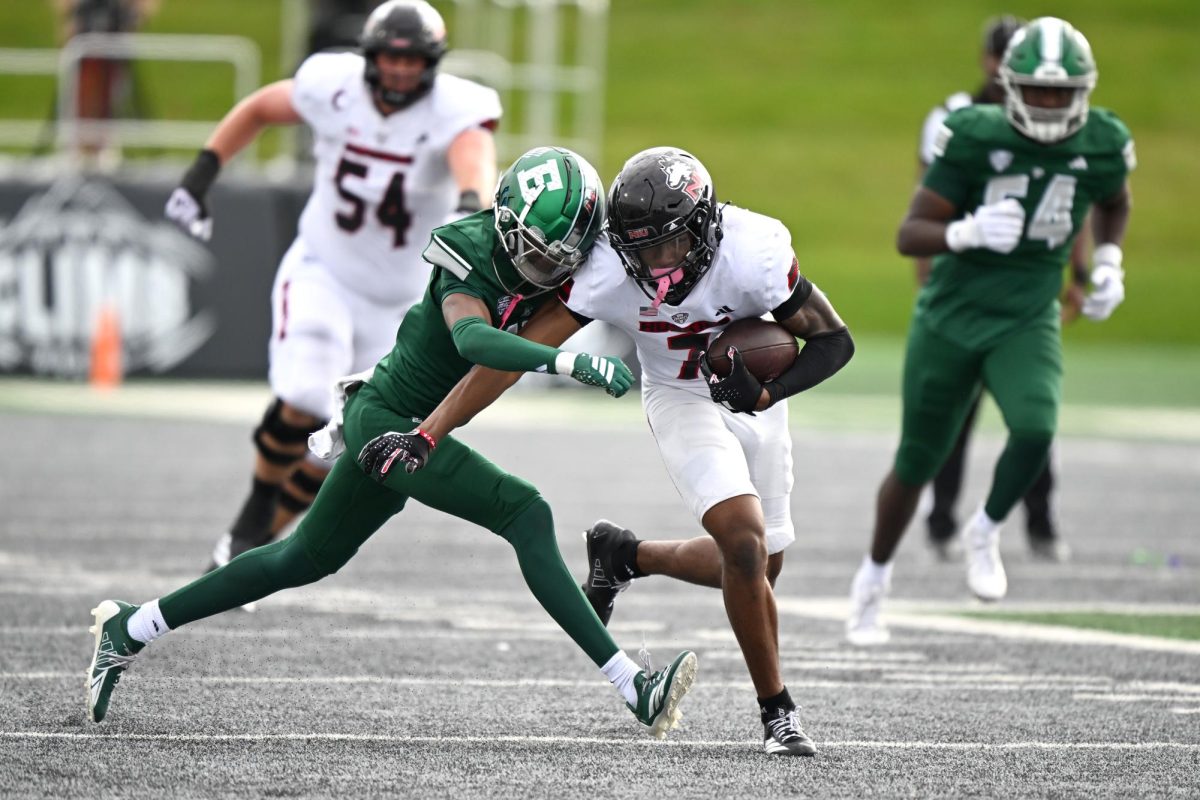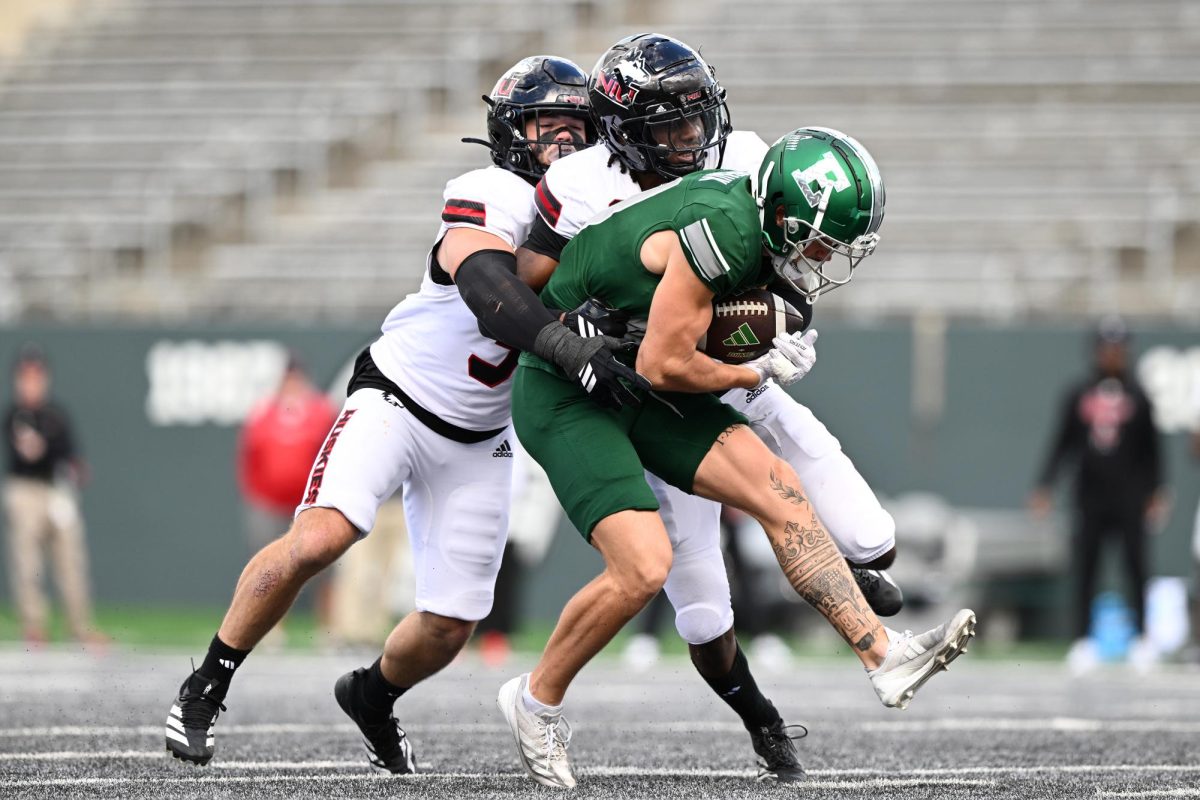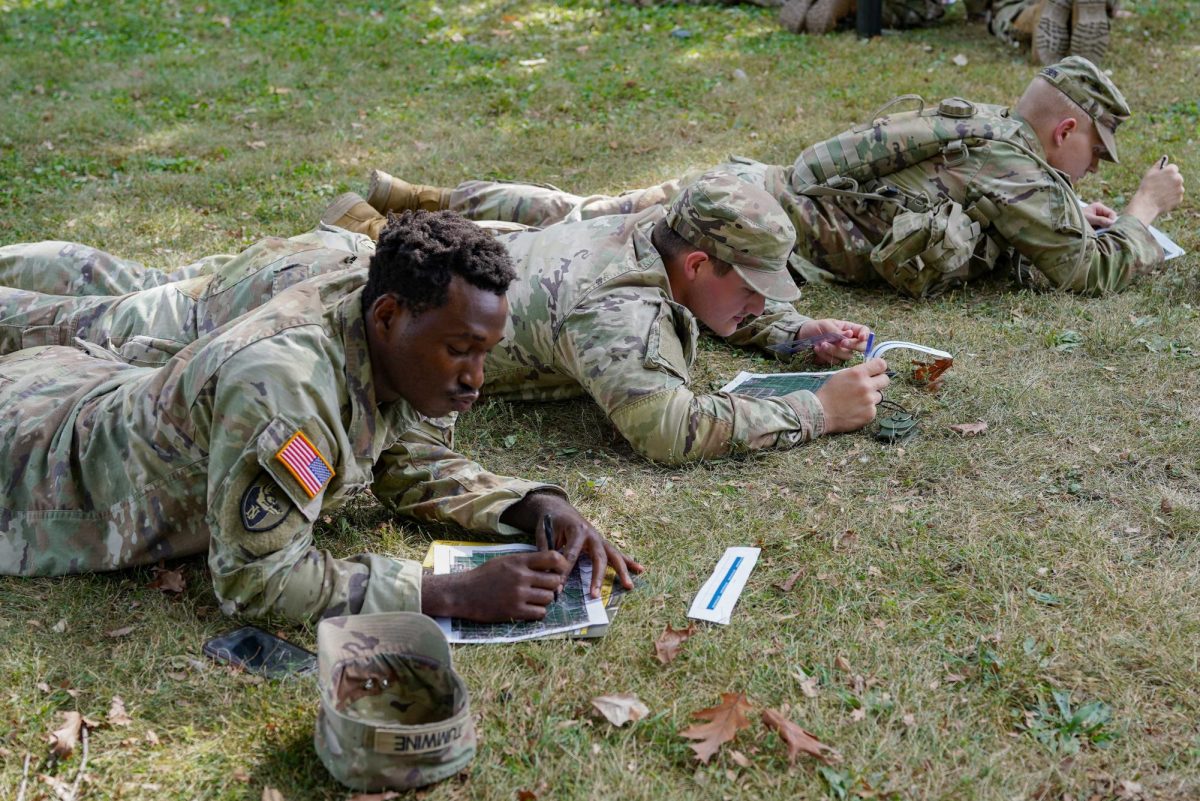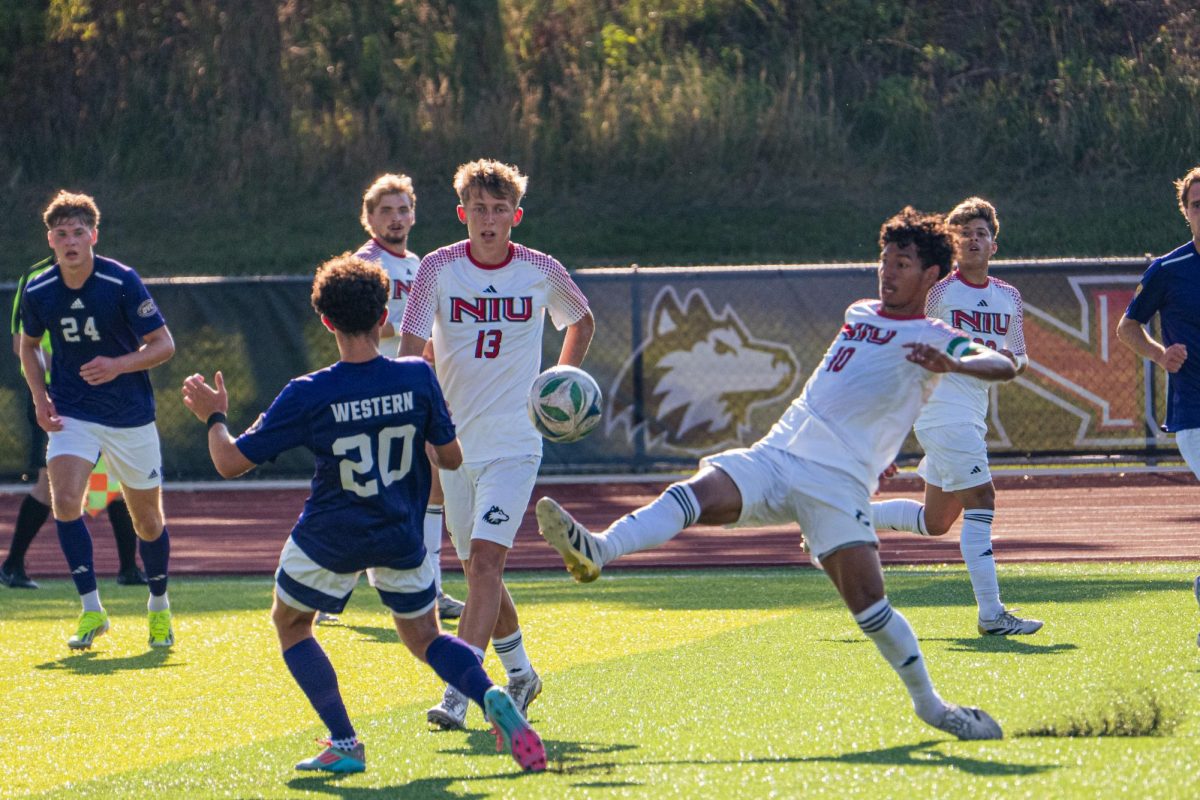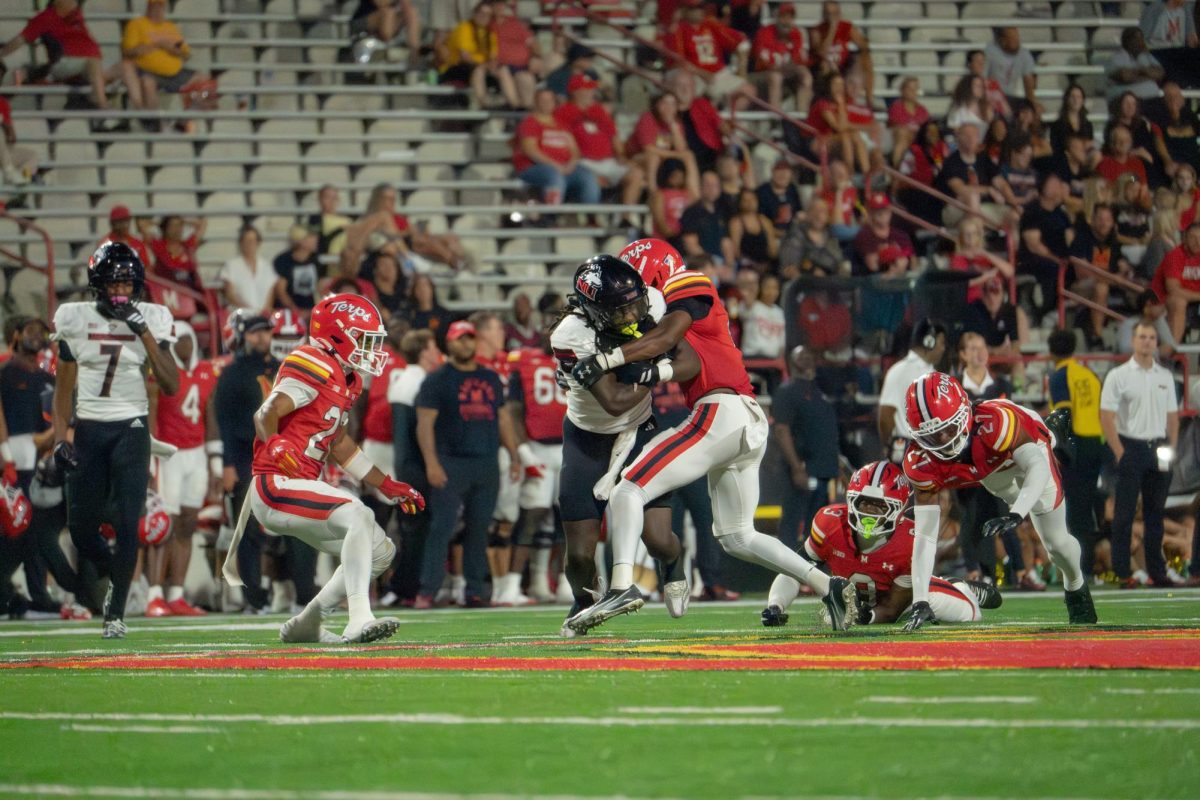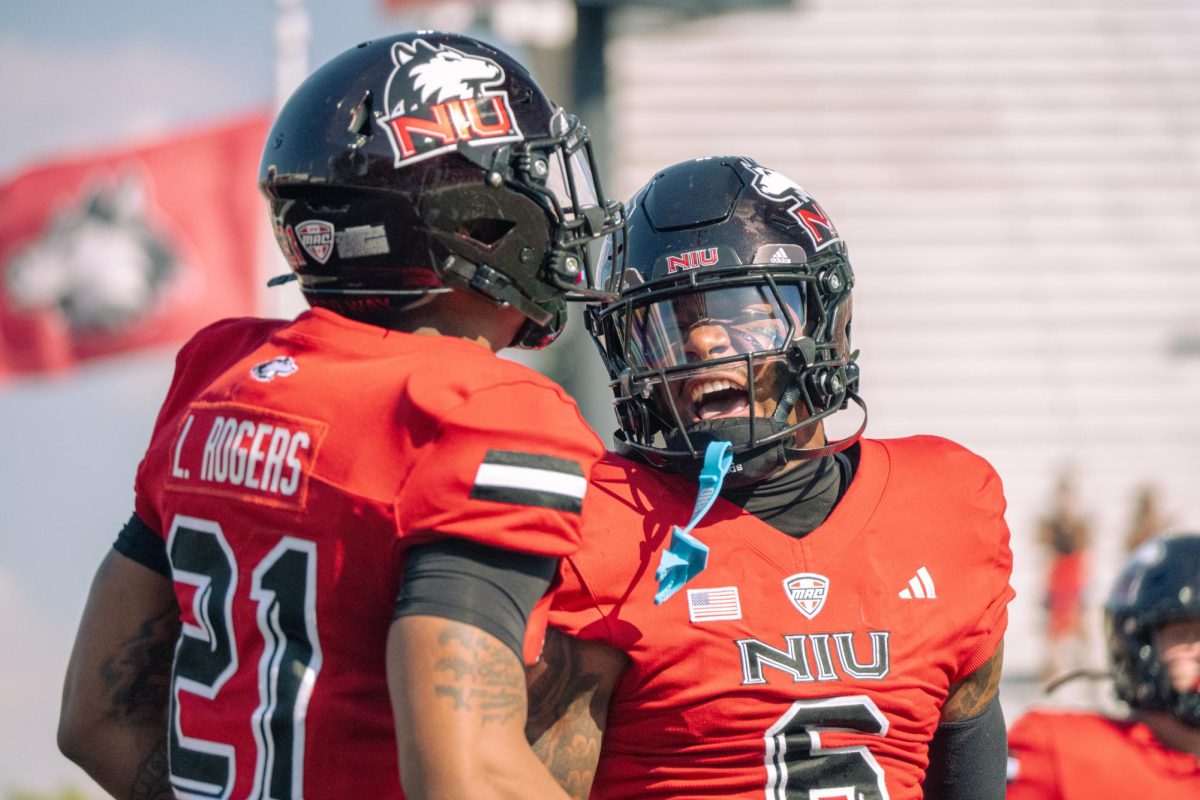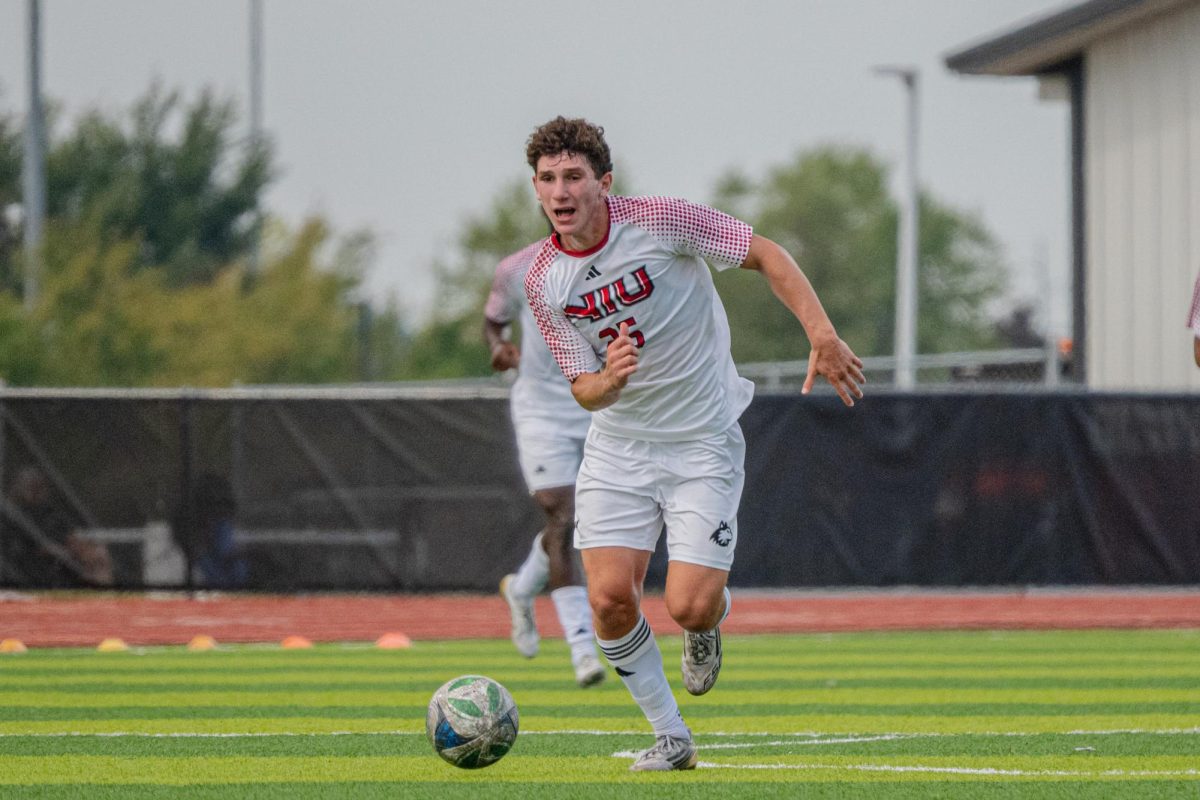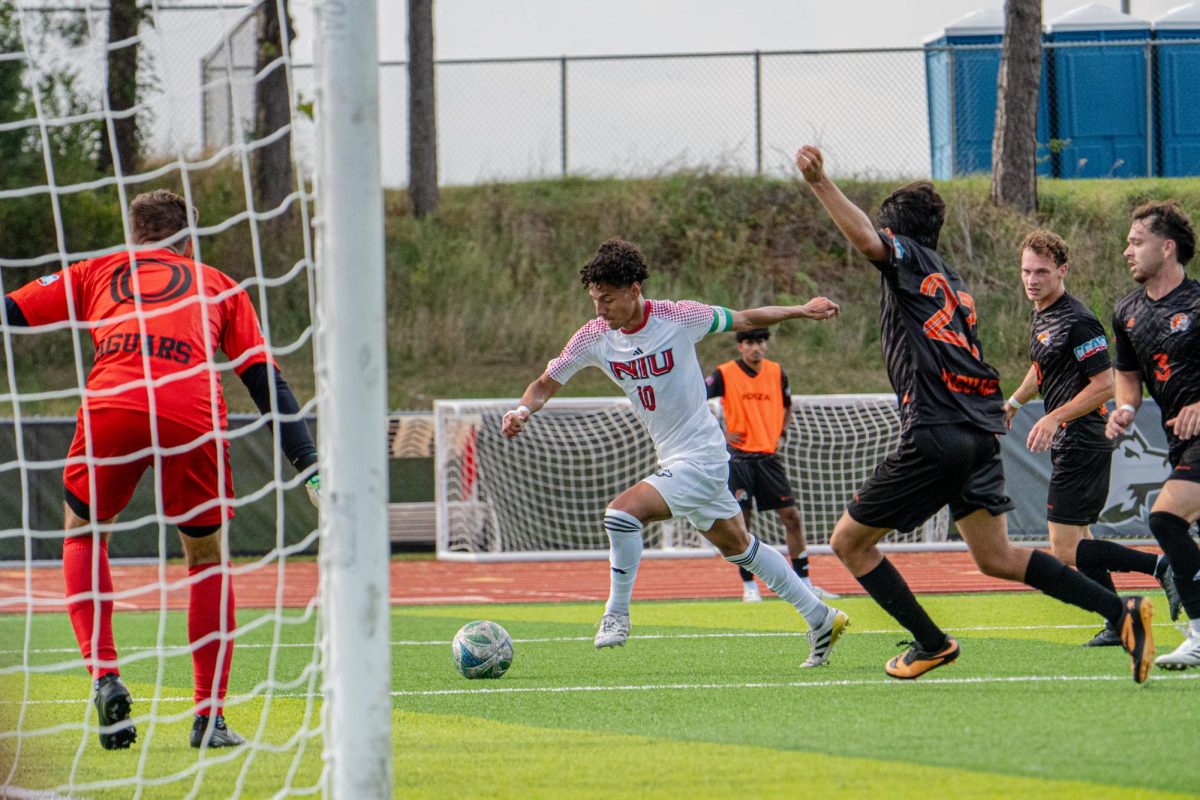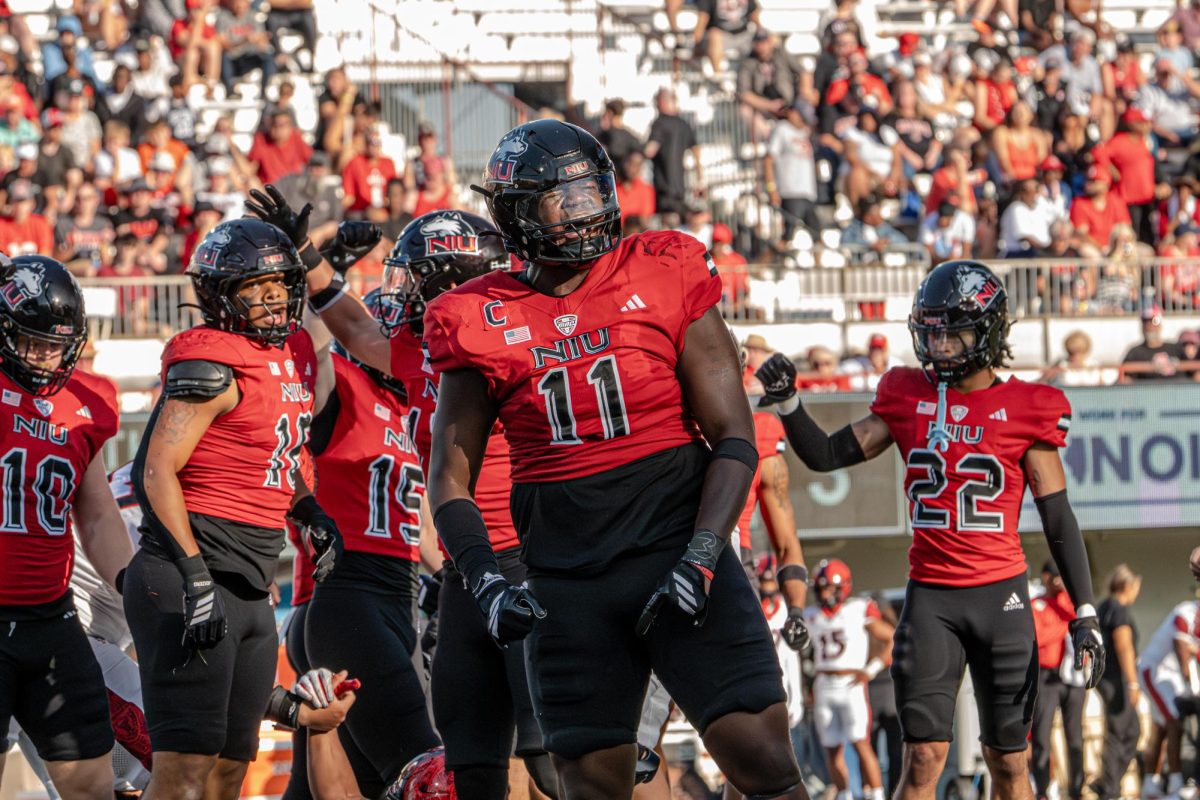Editor’s note: This is an ongoing breaking news story. This story will be updated when more information becomes available.
DeKALB – NIU will officially join the Mountain West Conference as a football-only member starting in 2026, leaving the Mid-American Conference in the latest installment of college football’s conference realignment saga.
The NIU Board of Trustees voted unanimously during a special meeting Tuesday afternoon to approve $2 million for the required membership fee to join the MWC, completing the final step for the school’s admittance into the youngest Football Bowl Subdivision conference for football in 2026.
“This is a very exciting day for Northern Illinois University, NIU football and for Huskie fans across the country and around the world,” said NIU President Lisa Freeman. “The university is so pleased to accept the offer to join the prestigious universities to compete in the Mountain West Conference. This move will open new opportunities for our student-athletes, expand our reach and strengthen our brand.”
The future of NIU’s non-football sports remains uncertain, with Freeman indicating that the school might need to explore other conferences to house its Olympics sports after next season.
“As currently written, the MAC bylaws suggest that MAC members need to have FBS football as a sport,” Freeman said. “That suggests to us we need to be thinking differently and regionally to find an appropriate home for our other sports.”
The trustees’ vote comes months after reports emerged of NIU potentially moving its football program out west. Action Network’s Brett McMurphy first reported Sept. 26 that the Mountain West expressed interest in adding NIU and MAC cohort University of Toledo as football-only members. A later report by McMurphy on Dec. 10 indicated the school was considering an offer to jump to the western-based league.
With BOT approval now in hand, NIU will become the easternmost team in the new-look Mountain West. NIU and the University of Texas at El Paso – who accepted an invitation to the MWC as a full member on Oct. 1 – will join the conference’s seven legacy members in 2026: the United States Air Force Academy, University of Hawai’i at Mānoa, University of Nevada, Reno, University of Nevada, Las Vegas, University of New Mexico, San José State University and the University of Wyoming.
The move will increase the Mountain West’s football membership to nine schools in 2026, allowing each team to play an eight-game round-robin conference schedule. MWC commissioner Gloria Nevarez noted that NIU is expected to be the final piece in the league’s expansion efforts for the time being.
“We’re going to take a beat and pause and continue to monitor the environment,” Nevarez said. “I would never say never, but for now, we are not looking to expand further.”
The Huskies have been arguably the best football program in the MAC for the past decade-plus, winning five MAC titles under three different head coaches since 2011. NIU famously reached the Orange Bowl in 2013 and upset the University of Notre Dame earlier this season as a 28-point underdog, becoming the first MAC team to defeat a top-five opponent.
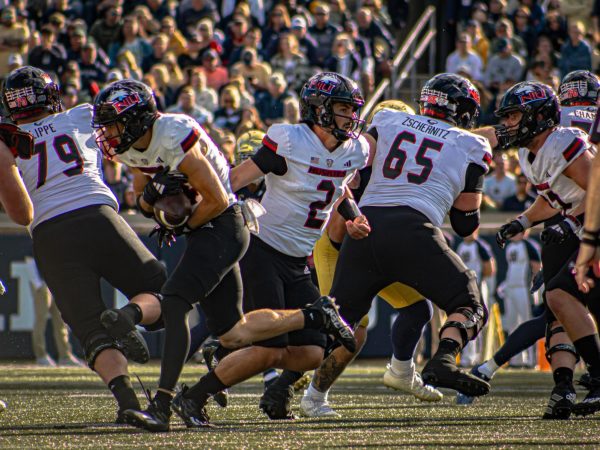
MONEY MATTERS
NIU’s move to the Mountain West will not only bolster the conference’s football brand, but it will also grant the MWC access to the Central time zone and Chicago’s vast media market. The league’s reach will expand across four time zones with the Huskies in the fold.
The hope is that NIU’s arrival will help enhance the league’s appeal in negotiations for its next media rights deal. The MWC’s current arrangement with CBS and Fox, signed in 2020, expires in the summer of 2026.
Mountain West schools are currently paid about $5 million per year, though that number is likely to change with five of the conference’s biggest schools on the way out. Even so, a memorandum of understanding signed by Nevarez and the leaders of the seven remaining schools guarantees each member will receive an annual media distribution no less than $3.5 million, effective in 2026. If the next TV deal falls short of that number, the conference “will utilize a combination of revenue sources to maintain these distributions.”
It remains to be seen how this agreement might apply to newcomers like NIU. Whatever the final number may be, it’s expected to be far more lucrative than the MAC’s reported per-school distribution of $833,000.
Travel costs are expected to rise with the longer distances to other conference schools – the shortest possible road trips being to Air Force’s Falcon Stadium (869 miles) and Wyoming’s War Memorial Stadium (868 miles). However, a report included in the meeting agenda for Tuesday’s meeting assures that additional expenses incurred by the transition will be cancelled out by future revenues.
“The costs to support the transition to the MWC, including travel, staffing, rebranding and exit fees will be primarily offset by increased revenues from multimedia rights, revenue distributions and guarantees from the conference as well as anticipated enhancements in revenue from ticket sales and donations,” the agenda reads. “After admission to the MWC, a ramp-up period of one year is anticipated before revenues fully reach projected levels. The university does not plan to use existing institutional funds to support the transition.”
LEAVING THE MACTION, AGAIN
As for the MAC, NIU’s departure is a significant loss for one of the NCAA’s oldest and most stable conferences. The MAC, founded in 1946, hasn’t had a full member leave since 2005 when Marshall University bolted for Conference USA. However, such a move isn’t without precedent for Illinois’ only Group of Five program.
The Huskies deserted the conference once before in 1986, due to philosophical differences between the school and the league. NIU spent seven seasons as a major independent before joining the Big West Conference from 1993 to 1995, overlapping with future leaguemates Nevada, UNLV and San José State. NIU then returned to independence for a season before it was admitted back into the MAC in 1997.
While NIU’s exit will strip the MAC of a cornerstone program, it won’t impact the conference’s membership numbers. The University of Massachusetts Amherst, a former affiliate member, is set to rejoin the league as a full member starting next season.
“While we would have preferred that NIU remain a member of the MAC, we understand that each institution must make an independent decision,” MAC commissioner Jon Steinbrecher said in a statement released by the league office. “Indeed, in recent years, many NCAA Division I institutions have decided to change their conference affiliations, just as student-athletes and coaches have. The MAC has been proactive in this respect. For example, in February, the MAC was excited to have the University of Massachusetts join our conference. As a result, the MAC remains a strong conference, very well positioned to continue to compete at the highest level in intercollegiate athletics.”
The 2025 season will be the Huskies’ final football season in the MAC before the move becomes official July 1, 2026.


